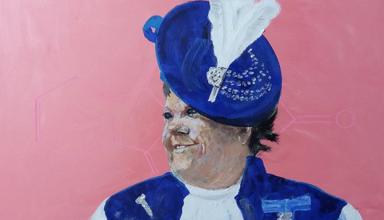Following recent events concerning the Black Lives Matter movement, the Senedd's Culture, Welsh Language and Communications Committee is to review how appropriate are the statues and monuments displayed in Wales' public spaces.
The Committee will be looking at who we choose to honour in public places and whether public bodies need guidance to ensure we respect our history without omitting vital context.
This work will also discuss who has not been honoured, such as the lack of statues of named women.
The Committee is interested in establishing some guiding principles on who or what should be commemorated and how to make balanced judgements when deciding whether it is appropriate to continue displaying certain figures.
As a starting point, the Committee is calling on the Welsh Government to compile an inventory of statues in public places.
In Bristol recently, a statue of Edward Colston, who traded slaves from Africa to the Caribbean, was pulled down by protestors, prompting many local authorities to consider removing similarly controversial monuments.
Councillors in Cardiff will debate the removal of a marble statue of Sir Thomas Picton from City Hall. Picton was celebrated as a hero of the Napoleonic wars, but was also accused of killing slaves and was convicted of torturing a young girl during his time as Governor of Trinidad, although he was never sentenced.
An obelisk monument dedicated to Picton is also prominently on display in Carmarthen, and Carmarthenshire County Council will debate their approach to this and similar monuments next week.
"The need for a debate about who is represented in our shared spaces is growing more urgent," said Helen Mary Jones MS, acting Chair of the Culture, Welsh Language and Communication Committee.
"The Black Lives Matter movement is shining a light on uncomfortable truths and we cannot simply ignore them any more.
"This Committee will be looking at the appropriateness of statues and monuments across Wales, and what criteria they should be judged on.
"We would like to gather as many views as we can on this issue and will be holding a series of meetings to hear what people have to say."
Details of how to contribute to this inquiry, and more details about the Culture, Welsh Language and Communications Committee's work, can be found on the Senedd Cymru website, or by following @SeneddCWLC on Twitter.


